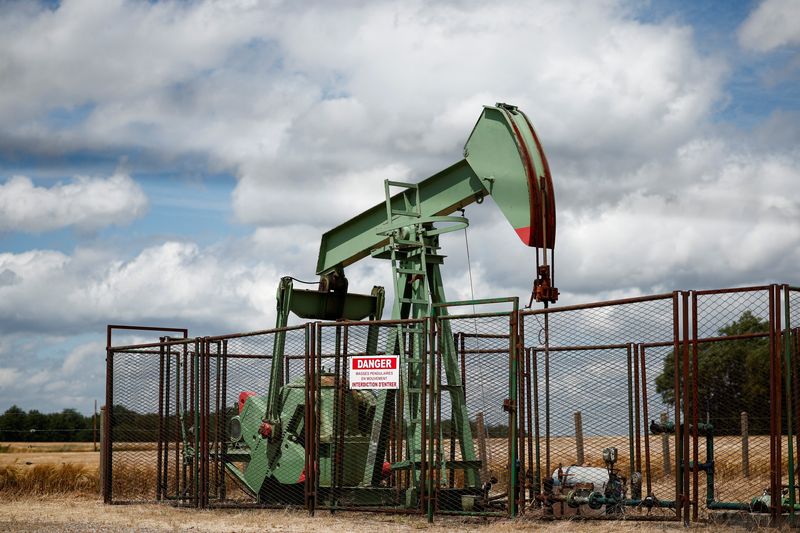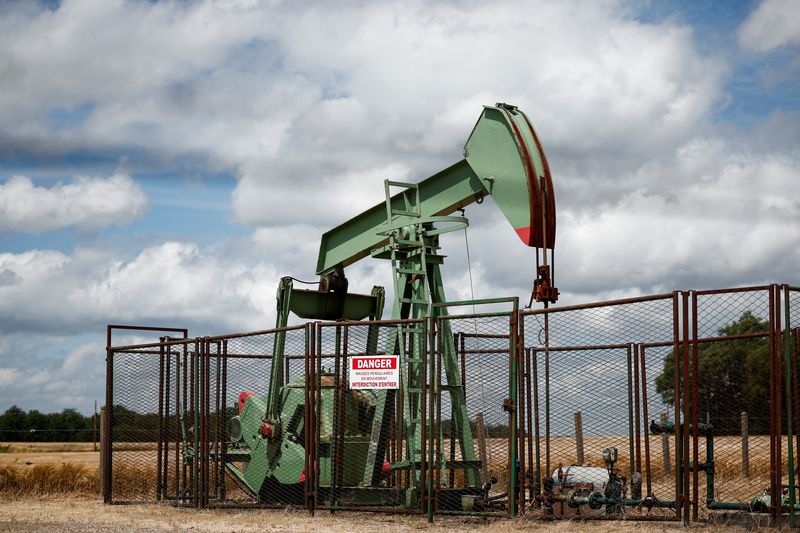Commodities
Oil down 2% as China demand woes erase last week’s gains

By Arunima Kumar
LONDON (Reuters) -Oil prices declined about 2% on Monday, wiping out all of last week’s gains, after China oil imports fell for the fifth month, stoking concern about fuel demand as OPEC cut its 2024 and 2025 global oil demand growth view again.
China’s stimulus plans also failed to inspire investor confidence while markets remained on edge about potential Israeli attacks on Iranian oil infrastructure.
futures were down $1.50, or 1.9%, at $77.54 per barrel by 1213 GMT, while U.S. West Texas Intermediate crude futures fell $1.53, or 2%, to $74.03 per barrel. Brent gained 99 cents last week, while WTI climbed $1.18.
OPEC on Monday cut its forecast for global oil demand growth in 2024 and also lowered its projection for next year, marking the producer group’s third consecutive downward revision.
China, the world’s largest importer, accounted for the bulk of the 2024 downgrade as OPEC trimmed its growth forecast for the country to 580,000 barrels per day (bpd) from 650,000 bpd.
China’s crude imports for the first nine months of the year were down nearly 3% from last year to 10.99 million bpd, data showed.
Declining Chinese oil demand from the growing adoption of electric vehicles (EV), as well as slowing economic growth following the COVID-19 pandemic, has been a drag on global oil consumption and prices.
China’s deflationary pressures also worsened in September, according to official data released on Saturday. A press conference the same day left investors guessing about the overall size of a stimulus package to revive the fortunes of the world’s second-largest economy.
“China’s monetary stimulus measures failed to stimulate and the weekend’s pledge from the finance ministry to borrow more was long on cliches and phrases but short on reassuring and convincing details,” said Tamas Varga of oil brokerage PVM.
“Deflationary pressure on producer prices remained entrenched in September amidst lax consumer demand.”
The negative news from China outweighed market concerns over the lingering possibility that an Israeli response to Iran’s Oct. 1 missile attack could disrupt oil production.
The U.S. said on Sunday it will send troops to Israel along with an advanced anti-missile system in a highly unusual deployment meant to bolster the country’s air defenses.

“General feeling is that markets are treading water ahead of the Israeli response to Iran, with no real direction for prices until the situation in the Middle East is clearer,” said Panmure Liberum analyst Ashley Kelty.
The U.S. has been privately urging Israel to calibrate its response to avoid triggering a broader war in the Middle East, officials say, with President Joe Biden publicly voicing his opposition to an Israeli attack on Iran’s nuclear sites and his concerns about a strike on Iran’s energy infrastructure.
Commodities
Oil prices rise; U.S. crude inventories plunge, Russia-Ukraine truce eyed
Commodities
India’s Reliance to stop buying Venezuelan oil over US tariffs, sources say
Commodities
Oil prices climb on Venezuela supply worries

 Forex3 years ago
Forex3 years agoForex Today: the dollar is gaining strength amid gloomy sentiment at the start of the Fed’s week

 Forex3 years ago
Forex3 years agoUnbiased review of Pocket Option broker

 Forex3 years ago
Forex3 years agoDollar to pound sterling exchange rate today: Pound plummeted to its lowest since 1985

 Forex3 years ago
Forex3 years agoHow is the Australian dollar doing today?

 Cryptocurrency3 years ago
Cryptocurrency3 years agoWhat happened in the crypto market – current events today

 World3 years ago
World3 years agoWhy are modern video games an art form?

 Commodities3 years ago
Commodities3 years agoCopper continues to fall in price on expectations of lower demand in China

 Economy3 years ago
Economy3 years agoCrude oil tankers double in price due to EU anti-Russian sanctions



























